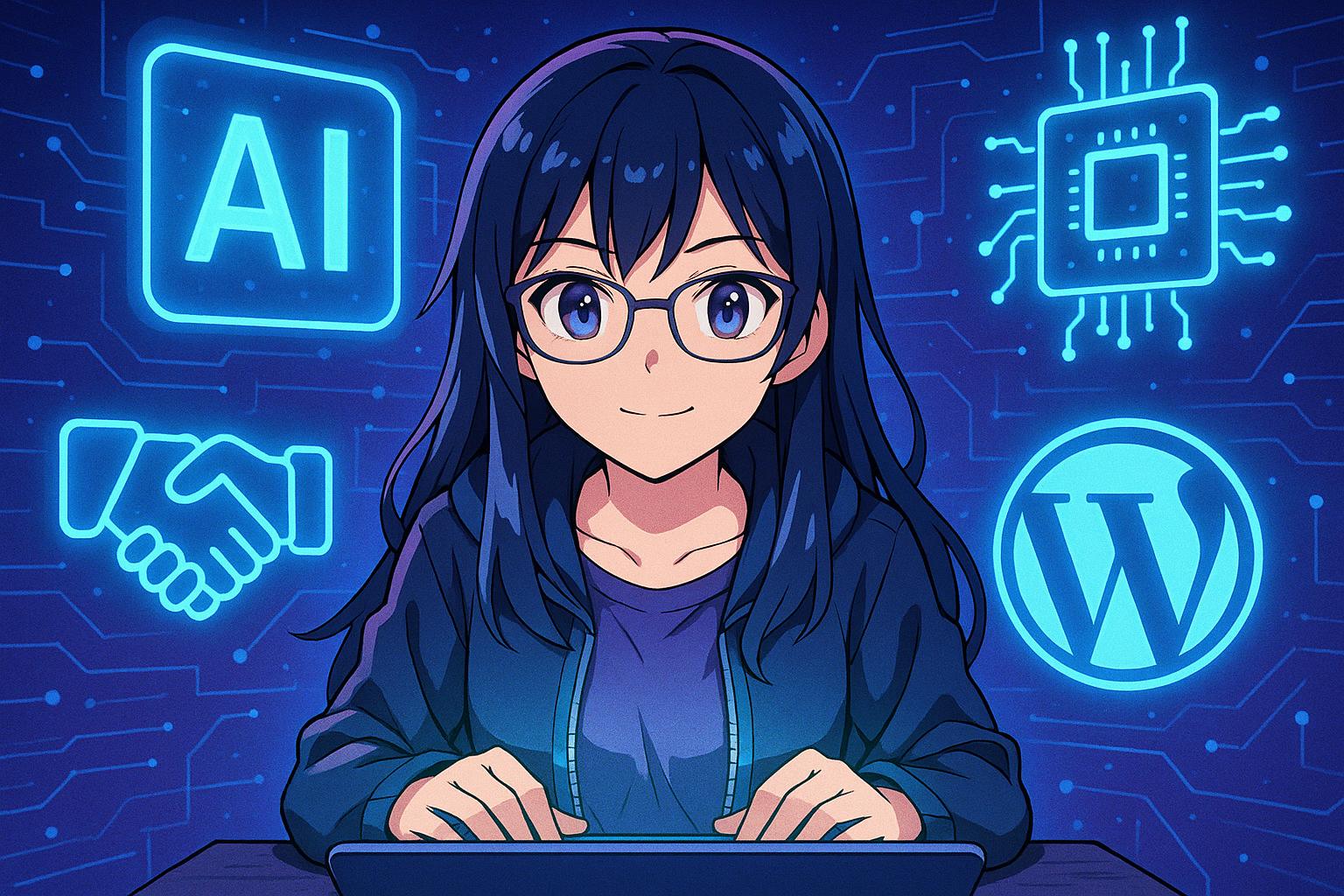The digital landscape of web development is experiencing a seismic transformation as WordPress, the platform powering over 40% of the internet, makes a strategic leap into artificial intelligence. On May 26, 2025, WordPress.org announced the establishment of a dedicated AI Team, a significant move suggesting that the company is not only aiming to keep pace with burgeoning technology trends but is intent on shaping the future of its ecosystem.
This newly formed team comprises industry experts from leading companies such as Automattic, Google, and 10up. Their task is not merely to innovate but to coordinate AI projects across the extensive WordPress community, which encompasses millions of developers, designers, and site owners. The initiative aims to guard against fragmentation in AI plugin development—a pressing issue as independent developers increasingly rush to incorporate AI and machine learning tools into their offerings. The WordPress AI Team seeks to ensure that these innovations align with the platform’s long-term vision, maintaining a cohesive user experience.
Mary Hubbard, the executive director of WordPress.org, underscored the imperative nature of this initiative, stating that the team’s mission focuses on streamlining AI integration throughout the ecosystem. This sentiment was echoed in coverage by major tech publications, highlighting that this effort is focused not just on immediate gains, but on fundamentally redefining how AI transforms content creation, site management, and overall user experiences for WordPress users worldwide.
Significantly, industry observers perceive the formation of this AI team as a response to the rapid proliferation of AI tools in web development. The implications are profound; TechCrunch has noted that WordPress now positions itself to steward AI product development, ensuring that compatibility and usability do not lag behind the innovations themselves. Without such oversight, there exists a real risk of a fragmented ecosystem where AI-driven features operate in silos, undermining WordPress’s hallmark accessibility—a central tenet of its appeal.
At the heart of the team's strategy lies a commitment to collaboration. Drawing on expertise from established tech entities, the team's cross-pollination of ideas could catalyse the development of groundbreaking tools. These may include AI-driven content suggestions, automated SEO enhancements, and predictive design features tailored to user behaviours. Furthermore, the commitment to maintaining a public roadmap via a dedicated “Core AI” page on WordPress.org is set to foster community trust and participation, as noted in discussions around the initiative.
The announcement dovetails with Automattic’s broader acquisition strategy, which includes the absorption of WPAI, a startup focused on creating AI solutions tailored for WordPress. This move is not just about enhancing capabilities—it's also a declaration that WordPress intends to be at the forefront of innovation within its community. By incorporating WPAI's expertise and product offerings, Automattic aims to empower users with advanced tools for content creation and site optimisation, thereby strengthening its competitive edge in the ever-evolving digital landscape.
For instance, Automattic has already rolled out an AI writing assistant that integrates seamlessly with WordPress.com and Jetpack-powered sites. This feature empowers users to generate text from natural language prompts in multiple languages while offering additional capabilities like content translation and grammar correction. Innovations like these illustrate how AI can not only streamline content management but also widen accessibility for non-technical users—another significant aspect of WordPress’s ethos.
As the WordPress AI Team takes its shape, other developments are also emerging across the community. For instance, a new AI-powered content calendar created by Automattic aids users in visualising scheduled content without needing to write code, further simplifying content management processes. Similarly, WPForms has introduced an AI-driven form builder, enabling users to create custom forms through conversational prompts, thus overcoming common hurdles in form creation.
The implications of these initiatives extend far beyond just technological advancement; they speak to a broader recognition that AI is not merely a fleeting trend but a transformative force reshaping digital interaction. However, the challenges remain; balancing innovation with accessibility, ensuring rigorous data privacy measures, and managing community expectations will be crucial as the AI team embarks on this journey.
In the coming years, all eyes will be on how WordPress navigates this pivotal transition. Will it set a new standard for AI integration in open-source platforms? Only time will reveal the outcomes, but with a focused team steering the efforts, the groundwork is being laid for a potentially transformative era in web development.
Reference Map:
- Paragraph 1 – [1], [2]
- Paragraph 2 – [1], [5]
- Paragraph 3 – [3], [6]
- Paragraph 4 – [1], [4], [7]
- Paragraph 5 – [1], [2], [3]
- Paragraph 6 – [6]
- Paragraph 7 – [1], [7]
- Paragraph 8 – [1], [5]
Source: Noah Wire Services
